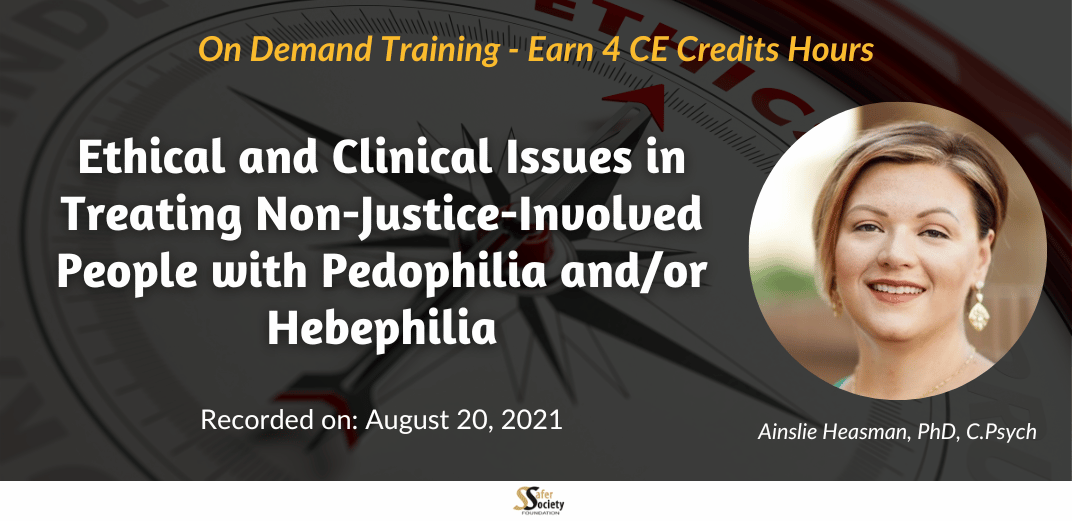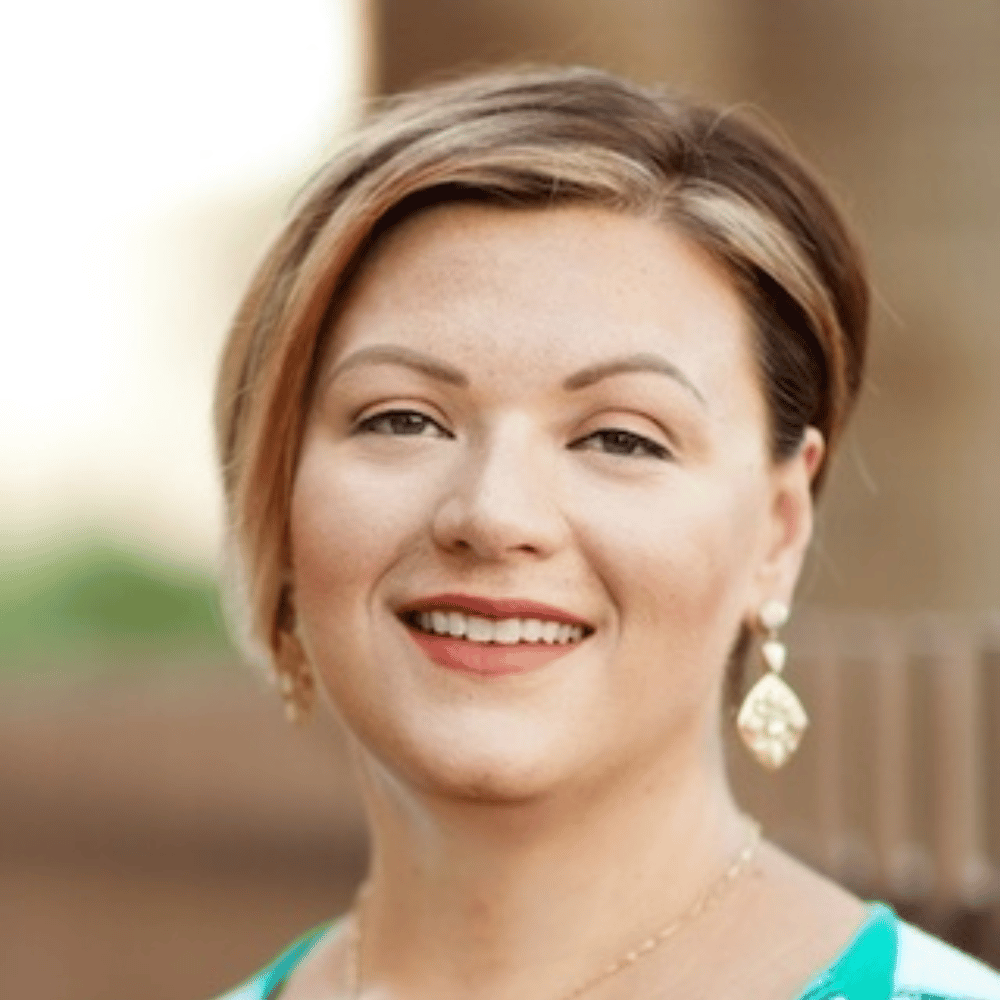
Ethical and Clinical Issues in Treating Non-Justice-Involved People with Pedophilia and/or Hebephilia
Already purchased an On Demand training?
Click here to access your Safer Society On-Demand Training Center account.
Treating non-offending individuals who have a sexual interest in children is gaining attention as a necessary approach in the prevention of child sexual abuse. To date, most treatment for individuals who have pedophilic and/or hebephilic interests happens only after abuse has occurred. With the increased efforts at using treatment to help people prevent acting on their interest has come ethical dilemmas regarding mandatory laws.
This workshop reviews what professionals need to know about individuals with pedophilia and/or hebephilia and who are not justice-involved. It examines their treatment needs and barriers to accessing services, including stigma by clinicians. The workshop discusses these topics in light of known risk factors for child sexual abuse and sexual recidivism as relevant treatment targets. The workshop focuses on strategies for engagement and explores several case examples of non-justice involved people with pedophilia and/or hebephilia seeking therapy. The workshop concludes with practical recommendations for clinical work with this client population (in light of the possible ethical dilemmas) and how this intersects with the various legal requirements and evidence-based considerations.
1) Distinguish between pedophilia and hebephilia
2) Distinguish between paraphilias and paraphilic disorders
3) Explain the basic components of mandatory reporting laws and how these laws can differ from one region to the next
4) Summarize the ethical challenges associated with working with non-justice involved individuals with pedophilia and/or hebephilia
5) Evaluate the need for mandatory reporting based on case vignettes
6) Identify approaches and processes to address the ethical and legal requirements in working with non-justice involved individuals with pedophilia and/or hebephilia
Audience
This training is for professionals working with people who have experienced complex trauma as well as people who have perpetrated abuse. Professionals who will benefit from this training include social workers, psychologists, clinical counselors, and interested paraprofessionals.
Content Level
Disclosure
Continuing Education Approval
American Psychological Association (APA)
Safer Society Foundation, Inc. is approved by the American Psychological Association (APA) to sponsor continuing education for psychologists. Safer Society Foundation, Inc. maintains responsibility for this program and its content.
Who's Presenting

Ainslie Heasman, PhD, C.Psych
Dr. Ainslie Heasman, PhD, C.Psych is a Clinical Forensic Psychologist who is currently employed at the Sexual Behaviours Clinic at the Centre for Addiction & Mental Health (CAMH) in Toronto, Ontario, as well as in private practice. Dr. Heasman and colleagues recently received a grant from the Canadian government to develop and implement the first secondary prevention program in Canada for non-justice involved individuals with a sexual interest in children. Her graduate school training in the United States afforded her the opportunity to work in a civil commitment setting and a state forensic hospital. Dr. Heasman also previously worked in provincial corrections at the Ontario Correctional Institute. She currently engages in risk assessment for sexual violence as well as group and individual therapy for sexual offending and paraphilic interests for mandated and non-mandated clients. Her research and clinical interests involve non-justice involved individuals with a sexual interest in children. Dr. Heasman has presented nationally and internationally on these topics. She is currently the Treasurer on the Board of Directors of the Association for the Treatment of Sexual Abusers (ATSA) and an Associate Graduate Faculty member at Ontario Tech University.
